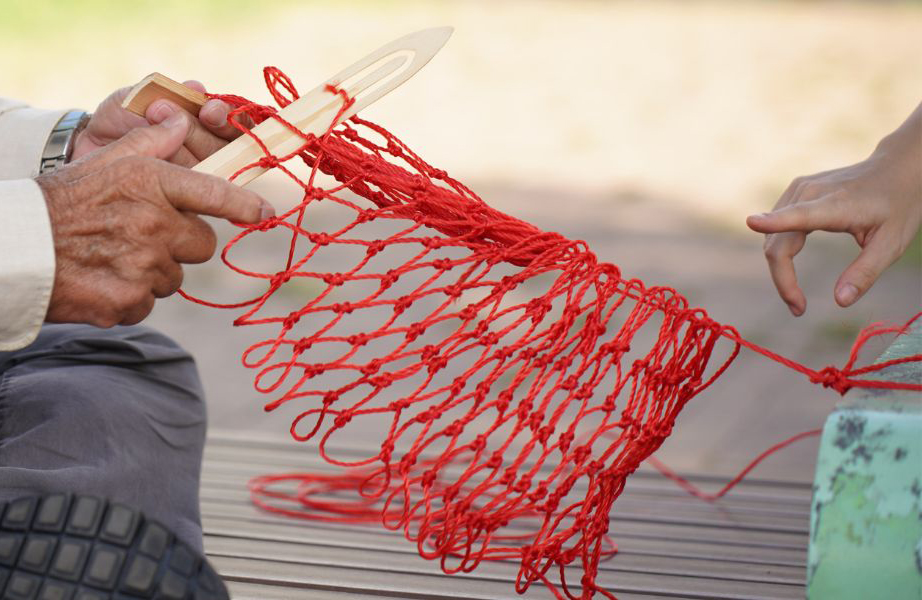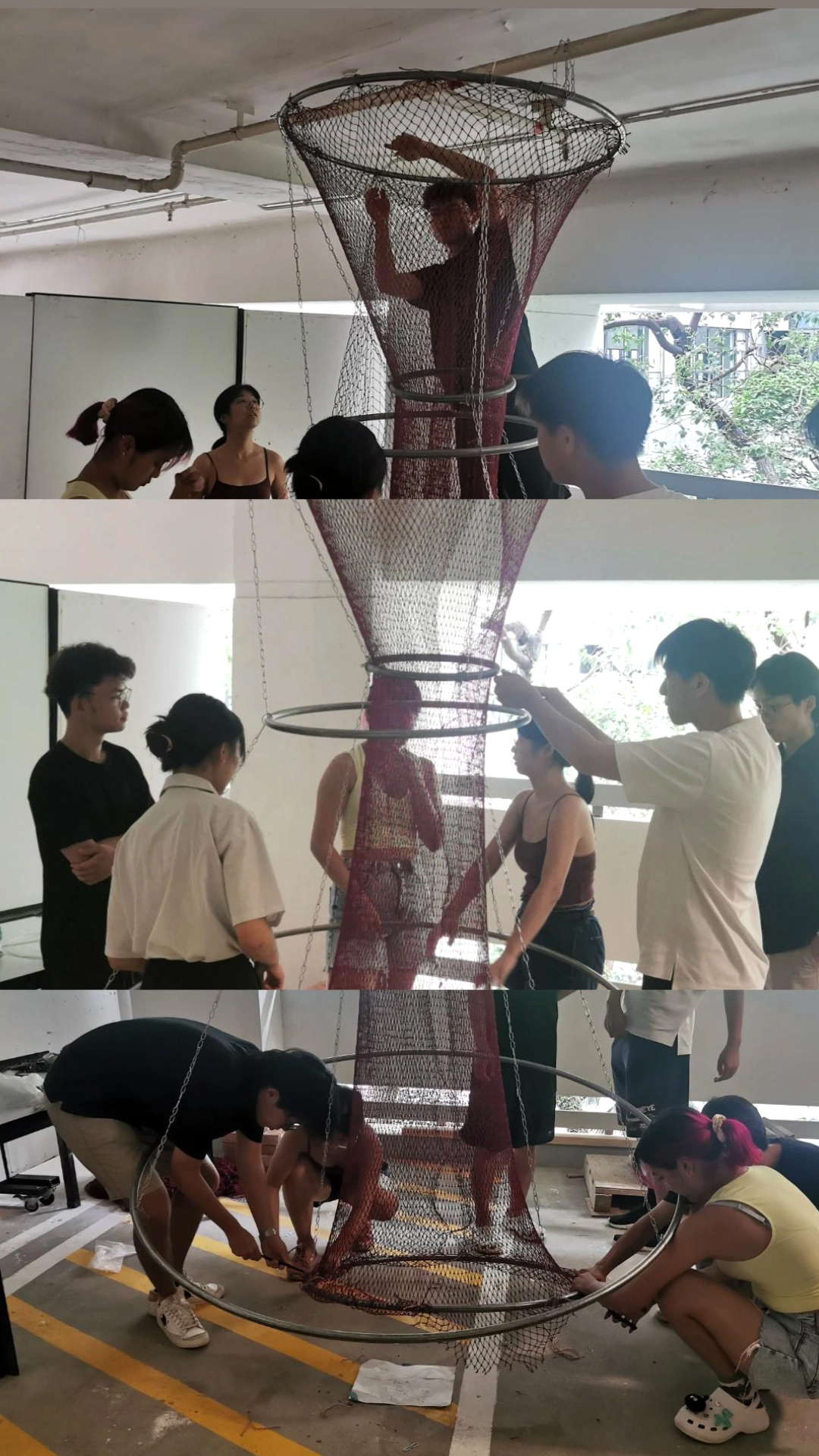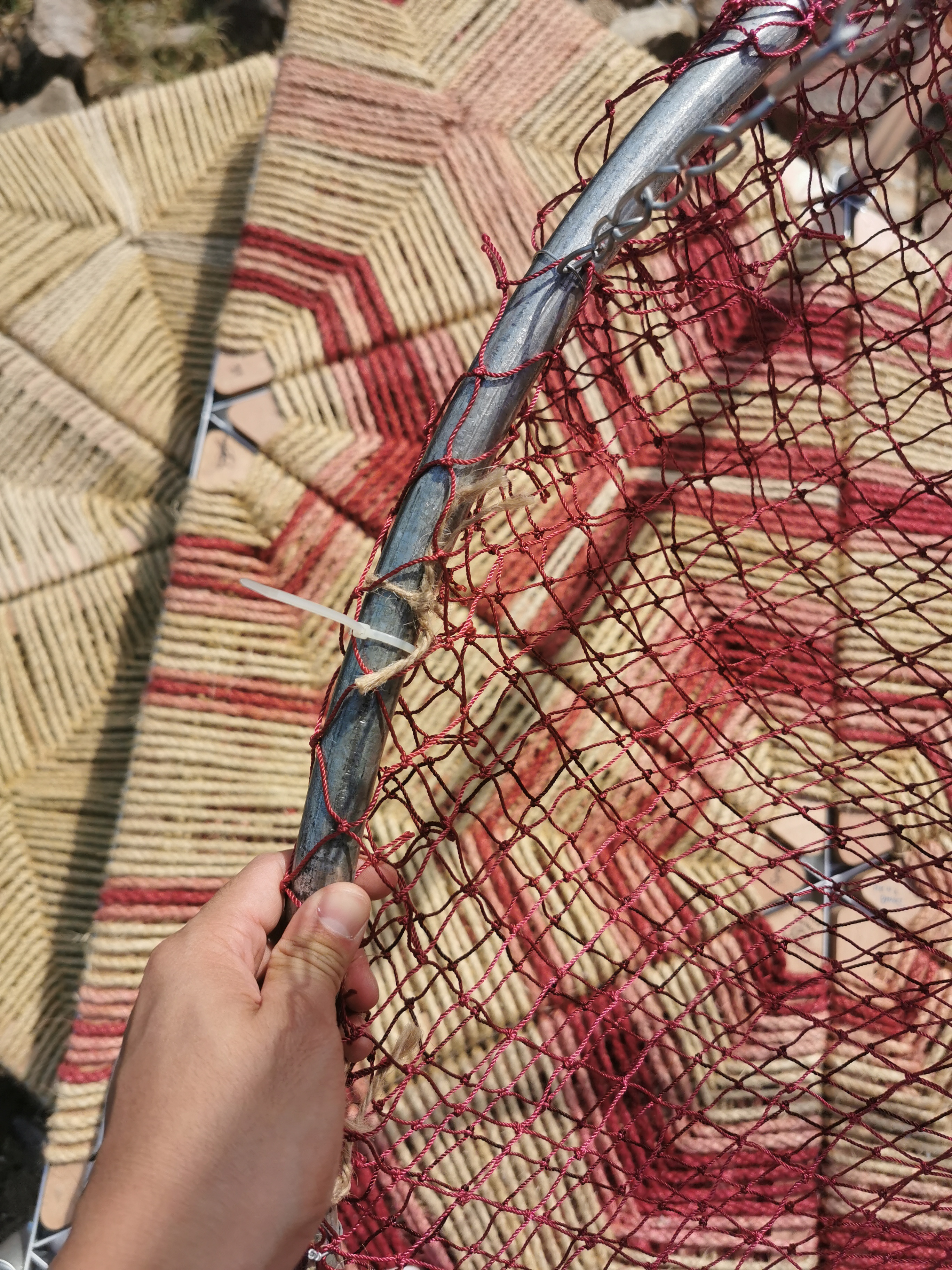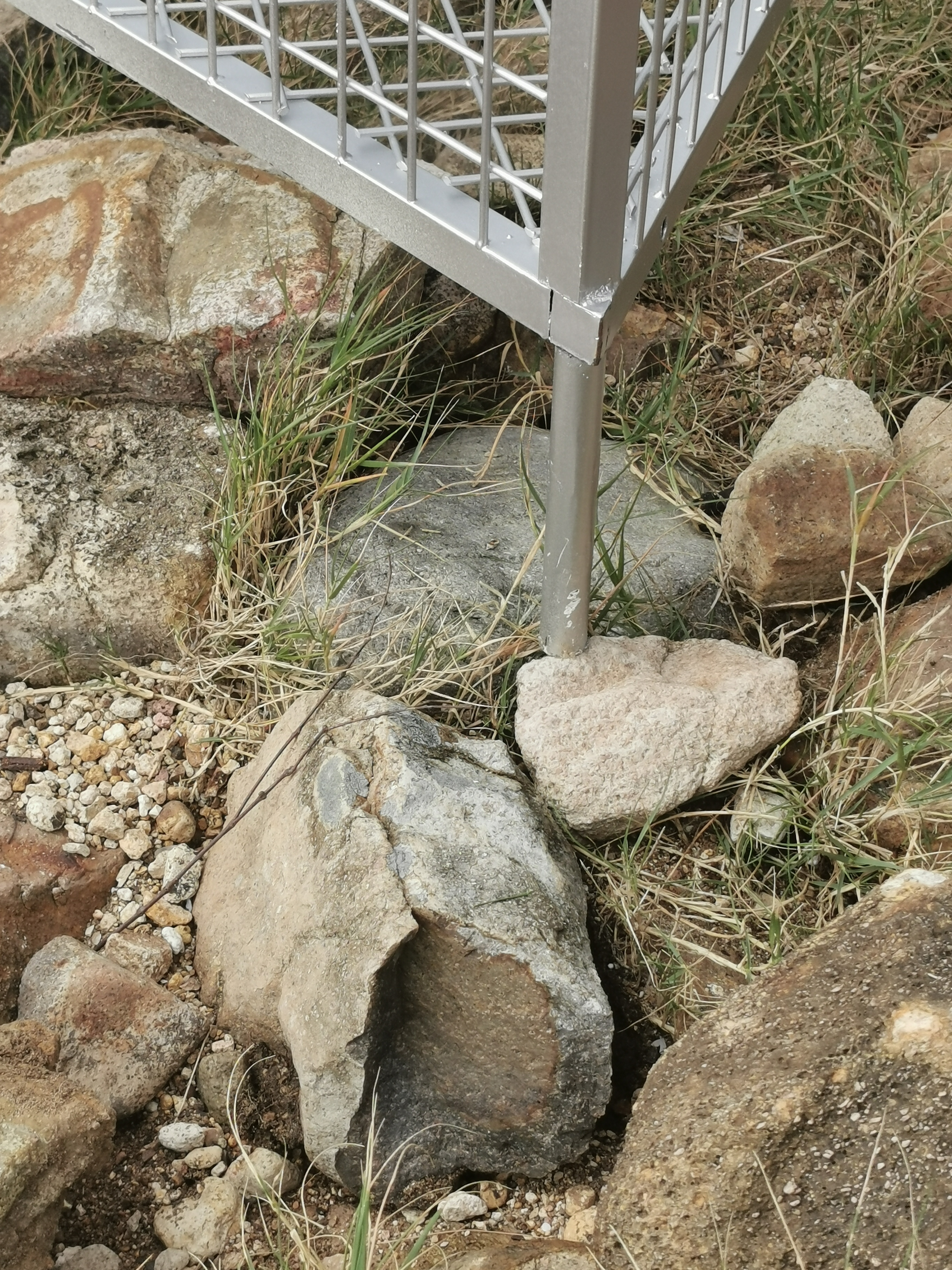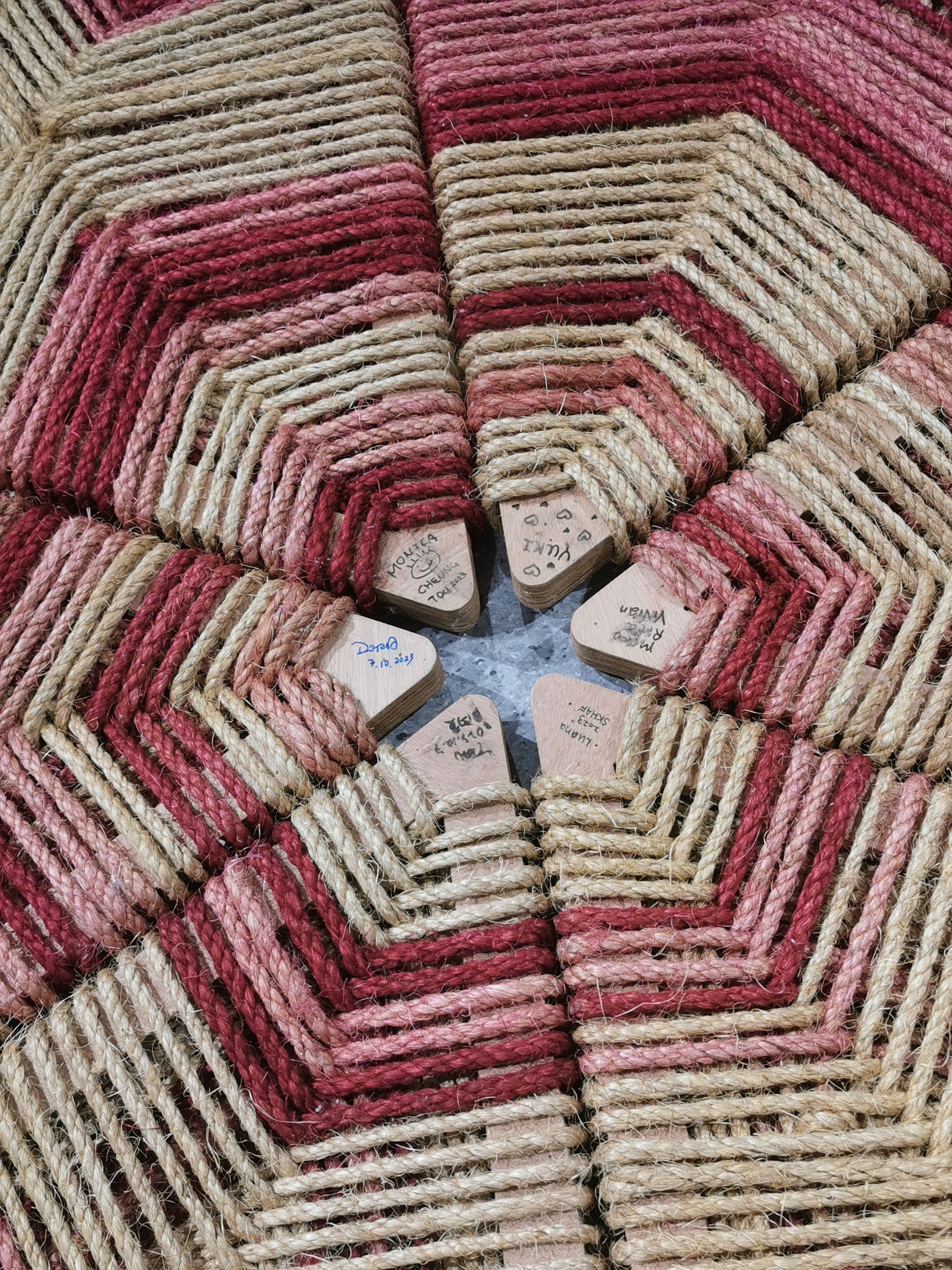●
2023.11
織浪亭
香港 西貢
香港 西貢
「織浪亭」的設計從漁民社群的日常建造活動中汲取智慧,探索一種簡便、經濟、具有漁村特色的建造方法。通過觀察魚籠的結構,設計結合漁網與鐵圈兩種材料,實現輕便的張拉結構。整個結構在運輸過程中可以折疊平放,待運到場地後通過漁網的拉力將下層鐵圈拉吊起,大大降低運輸難度與費用。通透的漁網材料可以讓海風吹過,避免結構受強風吹襲時的不穩定性,同時帶來層次豐富、隨時間變化的通透感美感。結構的基礎石籠利用場地石灘現有的大石壓重,可以在藝術節結束後原地拆卸回歸大地整體。鋼材構件可以拆卸留待滘西村民未來活動或建築維修使用,令建造的故事在村裡留存。通過島、網、人的連接,串聯漁村、漁業、漁民三條故事線,連接村落人文歷史與島嶼自然環境的漁村敘事重要空間,講述滘西陸地與海洋、客家人與水上人、島內與島外的空間故事。
團隊:蘇暢, 林顯峰, 林語詩
策劃:一口設計工作室
工程:Hattrick Creative
摄影:紀翔、徐亮
團隊:蘇暢, 林顯峰, 林語詩
策劃:一口設計工作室
工程:Hattrick Creative
摄影:紀翔、徐亮
Weaving Waves Pavilion
Sai Kung, Hong Kong
Sai Kung, Hong Kong
The design is inspired by Kau Sai’s fishing history, drawing attention from the daily construction of the fishermen's community. Learning from the structural logic of the fishing cage commonly found in Hong Kong, the design of the pavilion utilizes fishing nets and galvanized steel rings to create a lightweight tensile structure. The kit-of-parts structure can be pre-fabricated in the city, and then packed flat for easy transportation on a fishing boat. The porous fishing net material allows the sea breeze to blow through, avoiding the instability of the structure when it is hit by strong winds, and at the same time brings a sense of porosity with rich layers that change over time. The gabion foundation structure utilizes the weight of the boulders on site and can be dismantled and returned to the stone beach afterward. The steel components can be disassembled for future festival construction or building maintenance in Kau Sai, continuing the construction stories of the village. Weaving together By weaving together stories between land and water, between the Hakka people and the Tanka people, and between the space within and beyond the island, the design imagines a spatial narrative of the fishing village along the coastline, connects the cultural history of the village and the natural environment of the island.
Team: Su Chang, Lam Hin Fung Sherman, Lam Yu Sze
Curator: One Bite
Installation: Hattrick Creative
Photography: Ji Xiang Jason, Xu Liang Leon
Team: Su Chang, Lam Hin Fung Sherman, Lam Yu Sze
Curator: One Bite
Installation: Hattrick Creative
Photography: Ji Xiang Jason, Xu Liang Leon
1![]()

2
![]()

3
4![]()

1
![]()
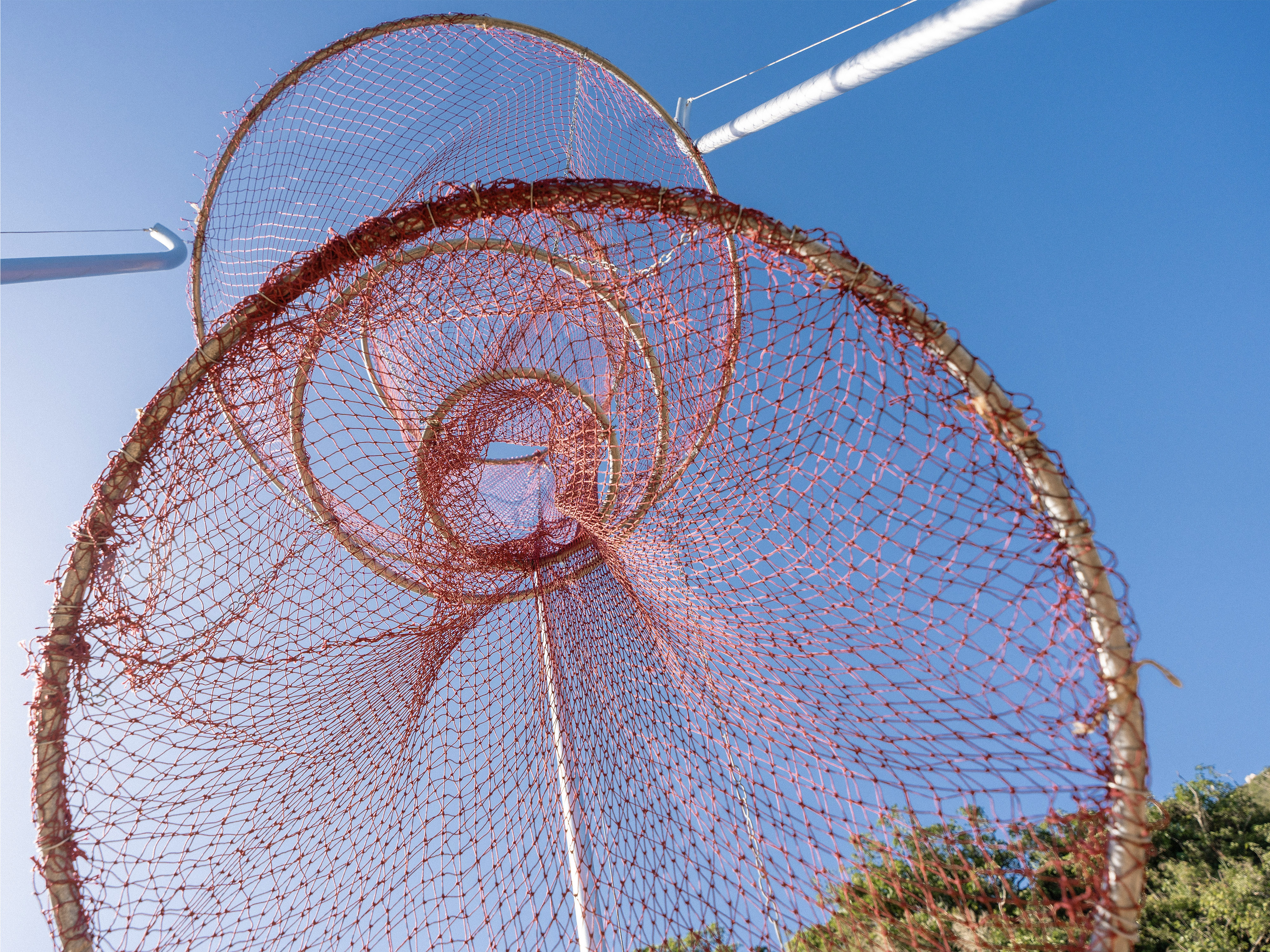
2
![]()

3
![]()
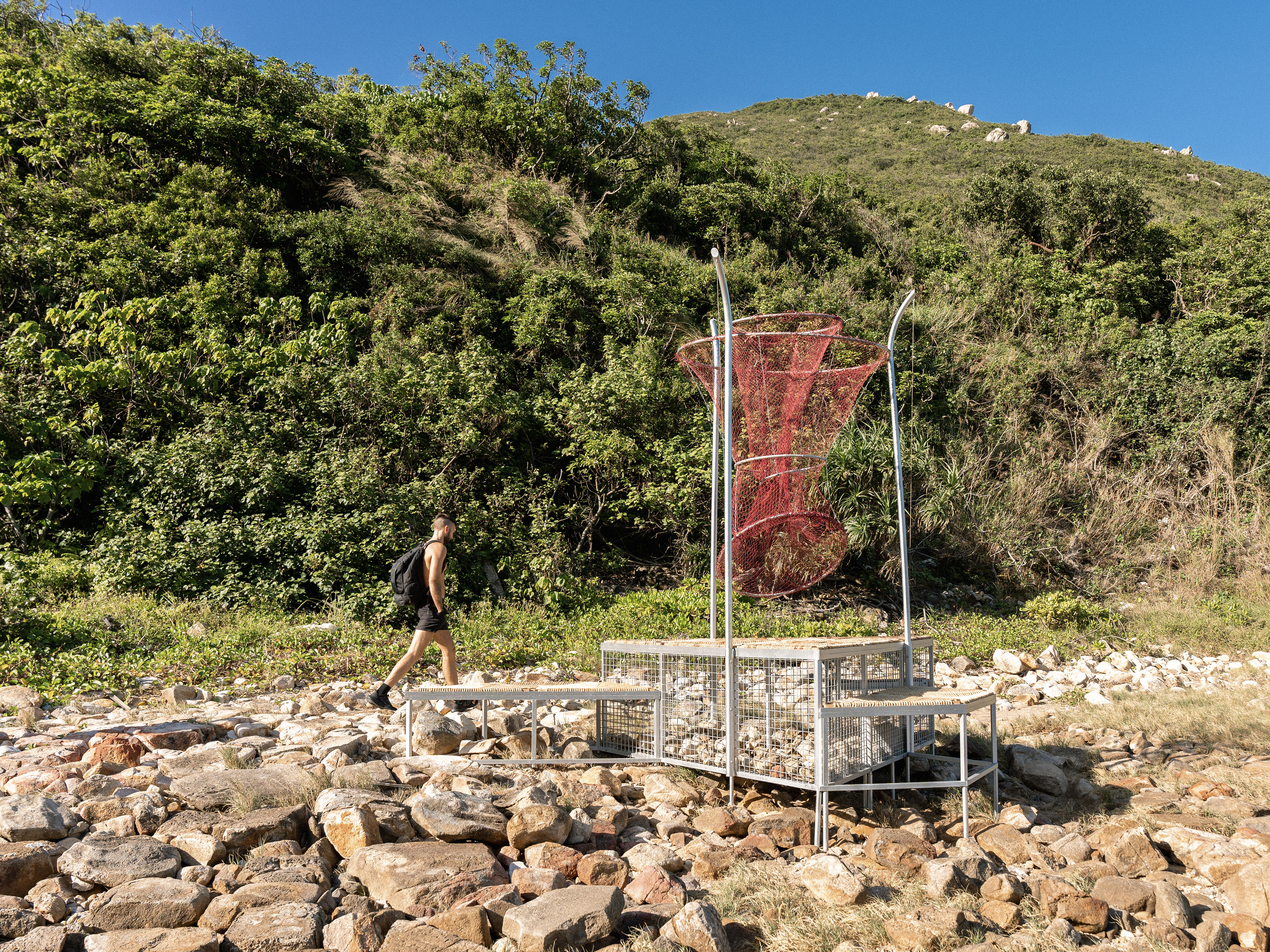
4
![]()
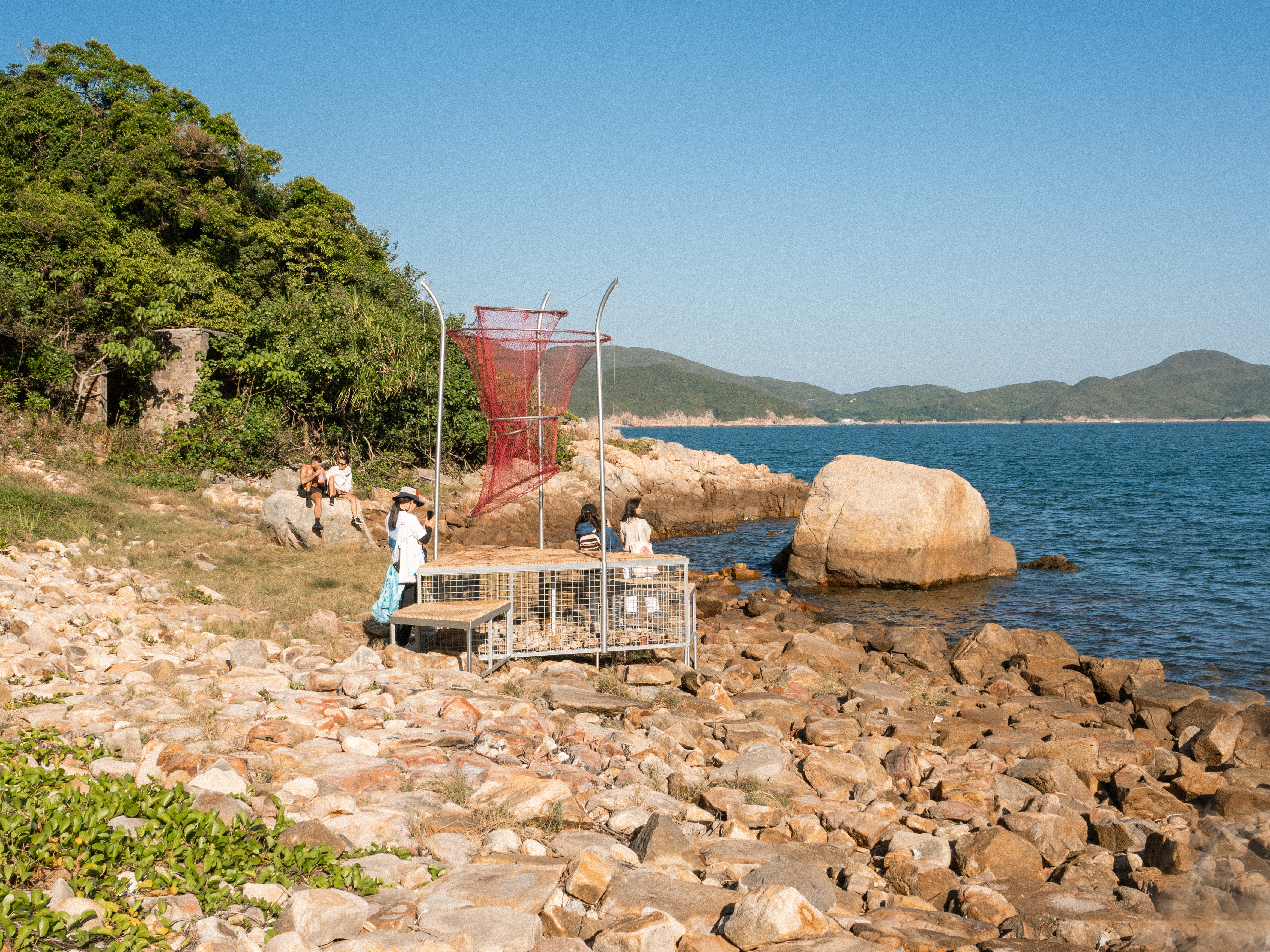
5
![]()

6![]()

7![]()

8
![]()

9
![]()
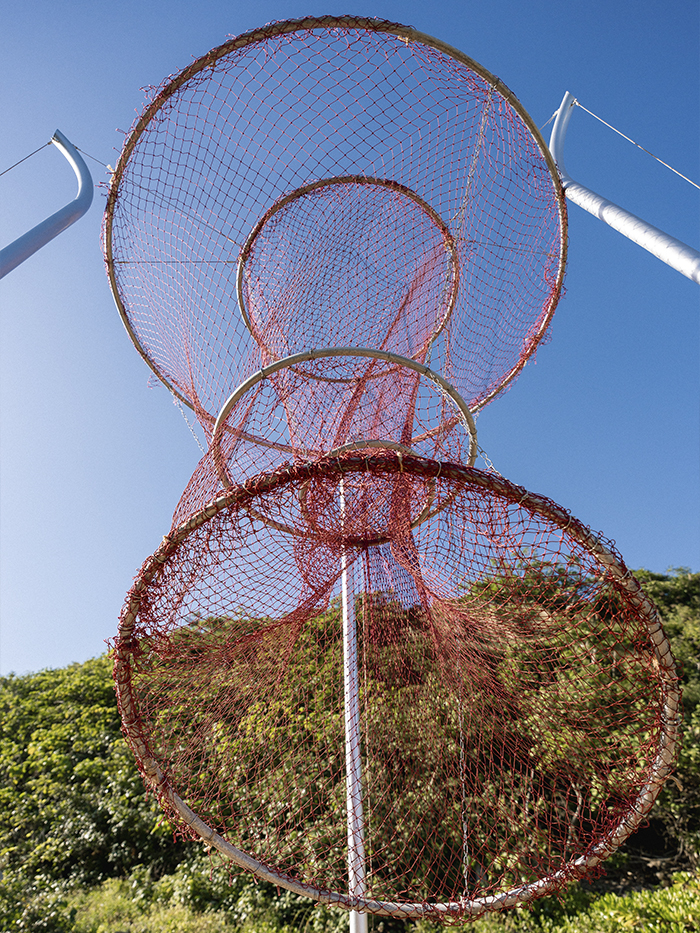
10
![]()

11
![]()
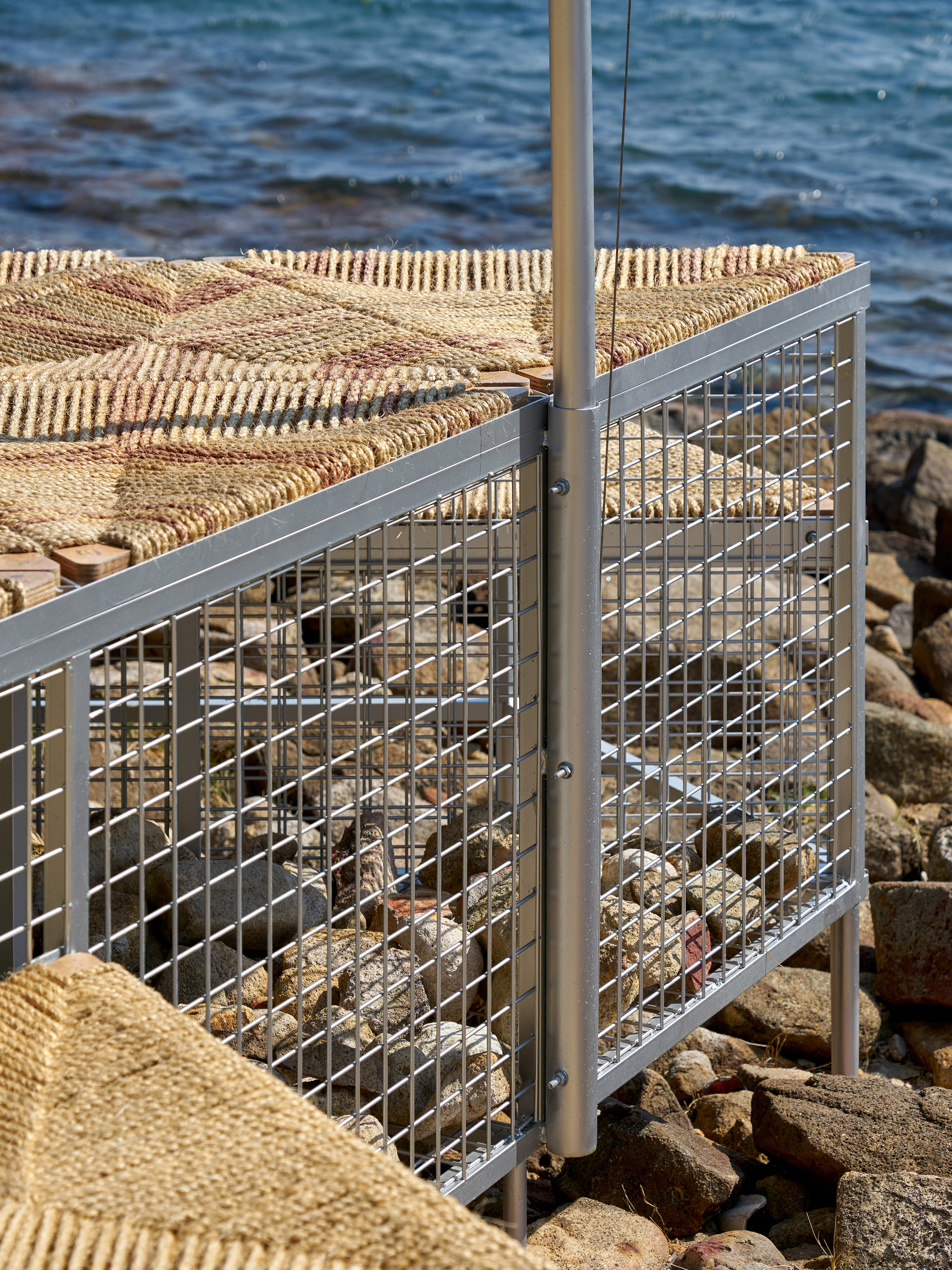
12
![]()

線索
Traces
Traces





